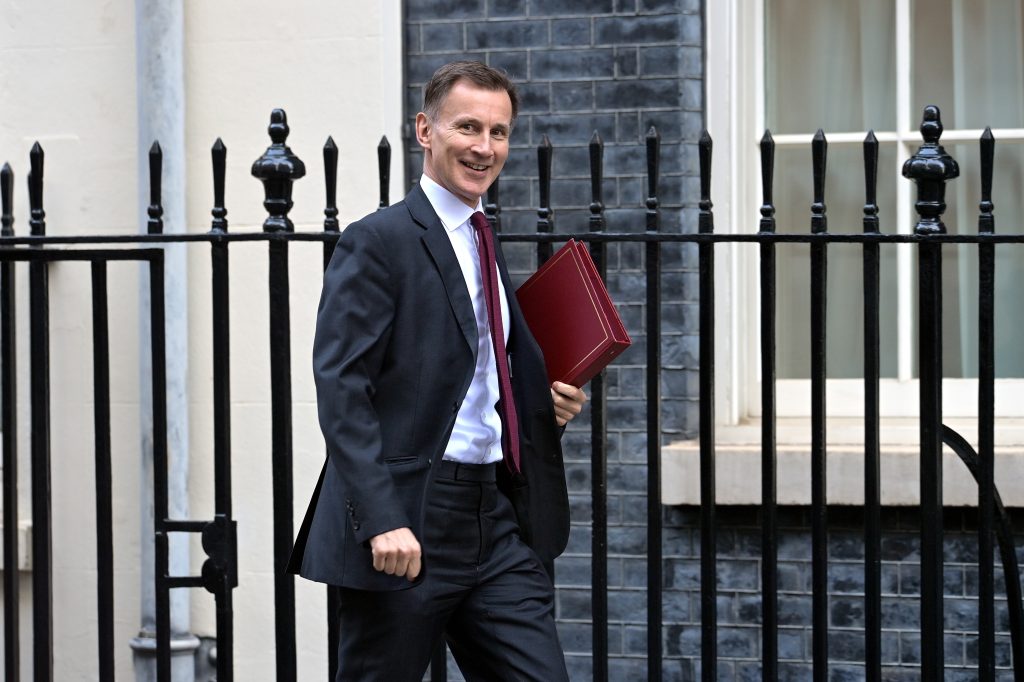
Delivering his speech to the House of Commons today (22 November) chancellor Jeremy Hunt announced a raft of measures that would impact retailers, such as his highly-anticipated verdict on business rates.
Hunt said that while temporary support measures could not continue “forever”, the government will freeze the small business multiplier at 49.9p until April 2025 and extend the 75% business rate discount up to £110,000 for retail, hospitality and leisure for another year.
However, the industry has expressed disappointment at the chancellor’s decision to allow the standard multiplier, that applies to higher value properties, to rise in line with inflation by 6.7%.
Last November this was frozen at 51.2p until April 2024.
Business rates
The business rate announcement has not been welcome for Helen Dickinson, CEO of the BRC, which recently joined forces with British Independent Retail Association (BIRA), UKHospitality, Association of Convenience Stores and UKActive in urging the chancellor to freeze the business rates multiplier.
Advertisement
Dickinson said retailers and customers were “sold out” by the statement, which she slammed for “not doing enough” to suppport the industry.
“The Chancellor has poured fuel on the fire spreading across our high streets with a tax hike on shops and other businesses. His decision to increase the business rates standard multiplier will cost retailers hundreds of millions every year, ” Dickinson said.
“The extension to the retail, hospitality and leisure relief and the freezing of the small business multiplier is a gesture of support to high streets and while it may help some smaller businesses, it does nothing for those retailers that provide the lion’s share of employment, investment, and low-cost essentials for customers.”
Martin Foster, managing director of independent Lakeland Leather, which has 15 stores around the UK also called for long-term reforms to the business rate system: “We have a number of properties that capture the relief but clearly not all of them so it’s helpful to have a bit of financial support but it’s not the solution. We would like to see reforms.”
Scott Parsons, UK chief operating officer of shopping centre owner Unibail-Rodamco-Westfield, said: “Although there is some relief for small business, once again the Chancellor’s lack of impactful reform to business rates is disappointing news for British retail.
Advertisement
“The industry is screaming out for permanent reductions to occupancy taxes, which still stand at up to ten times more than other European countries, putting the UK at a huge competitive disadvantage.”
The managing director of one footwear retailer said he is disappointed about the business rate measures: “At some point, the government needs to recognise the difficulty that physical retail has. It’s tough to have shops.”
National Insurance
Additionally, in a boost to employees’ disposable income, Hunt announced that the main 12% National Insurance (NI) rate would fall to 10% from 6 January, which would save those on an average salary of £35,000 over £450 a year.
But, the managing director said the apparent increase in salary wouldn’t be felt acutely by retailers. “People have been so hard hit by inflation and energy price rises, so [the NI cut] will be well received by consumers in terms of softening the blow of the cost of living crisis but it won’t lead to a rush of people shopping.”
Josh Holmes, senior consultant at Retail Economics, said: “The announced measures, such as the national living wage rise and the reduction in National Insurance contributions, provide a ray of optimism for retailers. These income boosts, coupled with inflationary uplifts to pensions and universal credit, not only mean more money in consumers’ pockets, but also bodes well for improved consumer confidence as the new year approaches.
“While these measures bring immediate relief and potential for increased consumer spending, a cautious approach is warranted due to the broader economic headwinds and operational challenges that businesses in the sector continue to face.”
VAT-free shopping
Luxury industry bodies were “disappointed” in the chancellor’s decision to not bring back VAT-free shopping for tourists. The government abolished the VAT Retail Export Scheme (RES) on 31 December 2020, when the Brexit transition period ended, arguing that it offered little benefit to many parts of the UK and was inconsistent with international norms. However, MPs and retailers alike have continued to call for the reintroduction of the scheme.
Helen Brocklebank, CEO of UK luxury sector trade body Walpole, told Drapers it is “baffling” that the chancellor “continues to ignore this much needed reform”.
“The Treasury’s position continues to make the UK less competitive compared to our European neighbours. This not only drives tourist spending to Paris, Milan and Madrid, but investment as well.”
Steven Medway, CEO of Knightsbridge and King’s Road Partnerships, which represent 600 businesses across retail, hospitality and hotels in the Knightsbridge and King’s Road districts, echoed Brocklebank’s sentiment: “Today could have been an opportunity to correct mistakes and to supercharge London and the wider UK’s productivity.
“The more we delay, the more rival destinations are nipping at London’s heels as an attractive destination for international tourism,” he added.
Walpole’s Brocklebank welcomed the chancellor’s announcement that full expensing of plant and machinery investments would be made permanent:
“This will help support UK manufacturing, which is a hallmark of British luxury. I hope that the Chancellor will now listen to our calls for an extension of this scheme to second-hand plant and machinery, which would benefit heritage craftspeople and sustainability focused businesses,” she said.
Period pants
Meanwhile, high street retailer Marks & Spencer and intimates brand Modibodi welcomed the chancellor’s decision to scrap the 20% VAT tax on period pants.
Modibodi executive director Kerry Cusack described the news as “brilliant”:
“In 2021, it was disappointing that period pants weren’t included when they removed ‘tampon tax’, and so since then we have been campaigning to abolish VAT from period underwear as well.”
Marks & Spencer director of corporate affairs, Victoria McKenzie-Gould, said: “Paying tax on period pants was a bum deal for women everywhere and it’s great to see the Treasury throw in the towel and axe the pants tax.
“I want to thank our campaign partner [intimates brand] Wuka and the tens of thousands of individuals, politicians, brands and retailers who have thrown their weight behind our campaign to Say Pants to The Tax. This is a small change to the Treasury, but will make a big difference to women across the country. We’re delighted that the Chancellor has finished the job and levelled the playing field so that whatever period product someone chooses to use, it’s VAT free.”
This post was originally published on this site be sure to check out more of their content.






